Convictarian collector and photographer John Watt BEATTIE 1916


Prisoner SMITH, William per Rodney 3
QVMAG Collection QVM: 1985: P: 131
Photographer: Thomas J. Nevin 1874
Verso stamped with Nevin’s Royal Arms colonial warrant government contractor stamp
Exhibitions
Hundreds of Tasmanian police mugshots taken for prison administration by commercial photographer Thomas J. Nevin on contract in the 1870s-80s at the Port Arthur prison, the Hobart Gaol (assisted by his brother Constable John Nevin) and the Hobart Municipal Police Office (Mayor's Court, Hobart Town Hall) were held originally in the John Watt Beattie Collection at the Queen Victoria Museum and Art Gallery (QVMAG) Launceston, Tasmania on acquisition of his estate in the 1930s. Most were Nevin's duplicates and copies printed in carte-de-visite format; some were reproduced from Nevin's glass negatives by Beattie for sale and exhibition at his "Port Arthur Museum," 51 Murray Street, Hobart (Tas) and at the Royal Hotel, George St, Sydney (NSW) in conjunction with convictaria exhibited on the fake prison ship Success (1900s-1916). An exhibition of these 1870s prisoner photographs by T. J. Nevin was held at the Art Gallery of NSW in 1976 and the QVMAG in 1977.

TRANSCRIPT
CONVICT photos at LauncestonSource: Convict photos at Launceston, Mercury, 10th March 1977
HISTORIC photographs showing convicts at Port Arthur in 1874 will be exhibited at the Queen Victoria Museum and Art Gallery at Launceston from tomorrow to May 2.
The work of T. J. Nevin, the photos are being shown at Launceston for the first time.
Many of the men shown in the pictures had been transported to Port Arthur as young boys 40 years earlier.
The curator of fine art at the museum, Mr. John McPhee, said yesterday that the photos had "a quality far beyond that of records".
"Just once rascally, occasionally noble, always pathetic, these photographs are among the most moving and powerful images of the human condition," he said.
John Watt Beattie's catalogue sale 1916



Forty prints of 1870s Tasmania prisoners in three panels
Original glass plate negatives by T. J. Nevin 1870s
Reprints by J. W. Beattie ca. 1915
QVMAG Collection: Ref : 1983_p_0163-0176
These forty photographs in three frames were listed for sale in Beattie’s Port Arthur Museum Catalogue (1916) as item no. 69:
69. Three Frames containing 40 photographs taken at Port Arthur, showing types of Imperial Prisoners there.


Cover and Catalogue; Rooms 1-3
John Watt Beattie's Port Arthur Museum, Hobart.
Catalogue dated ca. 1916
Photographed from screen © KLW NFC Imprint 2025
SOURCE: National Library of Australia
Author: Port Arthur Museum (Tas.)
Title: Catalogue of exhibits [microform]
Edition: [2nd ed.]
Publisher: [Hobart? : The Museum?, 1916?]
Printer: (Hobart : Critic Print)
Description: 15 p. ; 21 cm.
Notes: Cover title.
Reproduction: Microfiche. Canberra : National Library of Australia, 2004.
Call Number: mc N 2225 JAFp HIST 3072
The forty (40) original prints on the three (3) panels:








































Photos courtesy of the Queen Victoria Museum and Art Gallery 2015.
Copyright © KLW NFC 2015 ARR
Chris Long copied these same original 1870s prints at the QVMAG in the 1980s as black and white photographs, considerably cleaned of scratches and cracks.
Chris Long's long con
Amateur historian Chris Long spent a few weeks at the QVMAG in Launceston in 1985 re-photographing as black & white prints the 40 uncut cdvs of prisoners taken by Nevin in the 1870s (those on the three panels, example above), fogging out cracks and scratches on the sepia originals in the process for reasons only known to himself, since they serve no purpose, unless he single-mindedly decided to muddy their provenance as Nevin's, and their primary function as police mugshots, in order to cover up his stupid error in proclaiming that Nevin didn't take the photos, contradicting historical evidence and the experts in the field, and that they were taken by the Commandant at Port Arthur, A. H. Boyd, never before heard of as a "photographer" by anyone for the simple reason he wasn't one. No photograph of prisoners or of any other subject in any genre was ever attributed to the non-photographer A. H. Boyd prior to Chris Long's long game of gambling his reputation on this silly claim. Chris Long's impulse as usual was to satisfy his personal need to imprint his own fantasy on primary historical documents until the facts about them all but disappear under his gifted amateur touch (gifting himself and grifting others in the process). The originals of the 40 uncut cdvs had been removed from the prisoners' Hobart Gaol rap sheets of the 1870s by John Watt Beattie and pasted in three panels for exhibition and sale in 1916.
A selection of the QVMAG collection of these mugshots was exhibited at the Art Gallery of NSW in 1976 and at the QVMAG in 1977 as the work of Thomas J. Nevin . All of the prisoners in the photographs mounted as cdvs had been named by that date - some incorrectly - by archivists either for the 1934 exhibition in memory of John Watt Beattie and his convictaria collection, or by the curatorial staff there in 1958, in 1977, in 1983-5, and 1991 - dates which appear either on the versos or in the accession sheets of public institutions which received Nevin's originals, Nevin's duplicates, or Beattie's copies. The Archives Office of Tasmania holds similar images, both originals and copies, and some are of unidentified prisoners, although the same man in the same print is identified in the QVMAG collection. All men pictured in the mugshots held at the National Library of Australia in Canberra - and many picture the same men as those listed in the QVMAG collection and in the National Library's collection - were identified on accession in 1962, 1982 and 1985, including the identity of the photographer T. J. Nevin, indicating clearly that the NLA received its collection from Tasmania.
The prints below are Chris Long's cleaned-up black & white reprints from Nevin's 1870s sepia prints which Beattie had pasted in three panels, and which Long reproduced in 1985 at the QVMAG, their purpose known only to Long himself. Most of these prisoners have been identified. With some patience, the prisoners in these reproductions at the QVMAG (1985) can be identified by collating the sepia uncut originals (1870s) with the original carte-de-visite prints inside oval buff mounts (1870s-1880s) held at the QVMAG, TMAG, and NLA, leaving a bundle who remain unidentified.
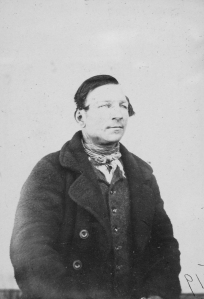
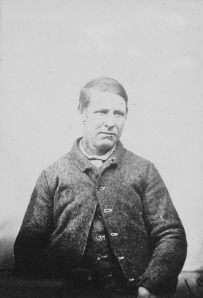
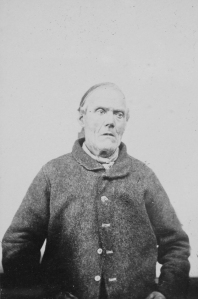
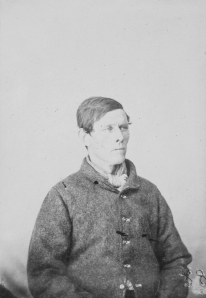

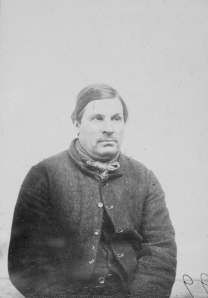
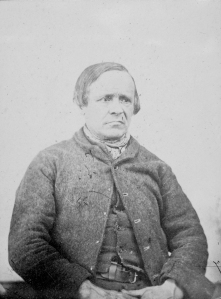
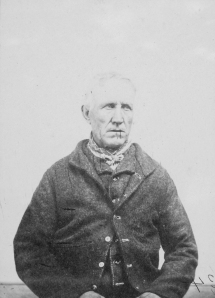
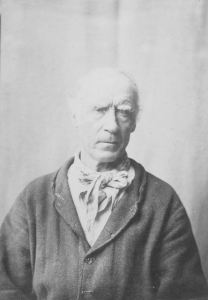
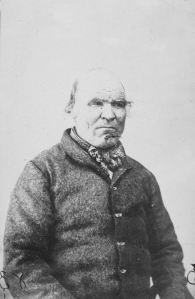
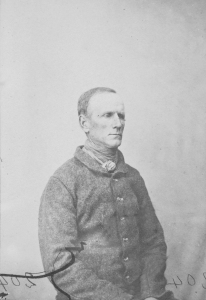
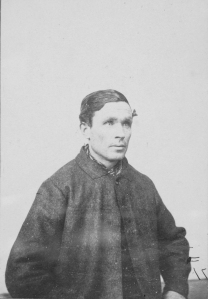
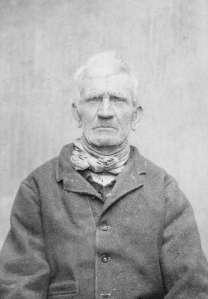
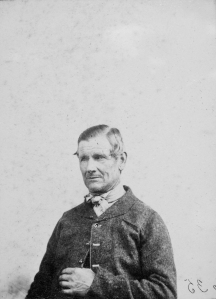

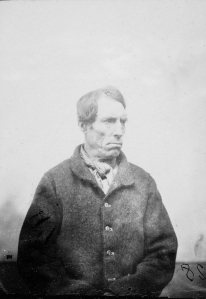



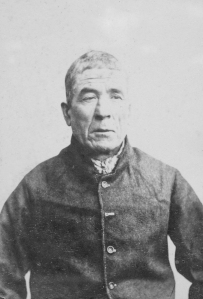
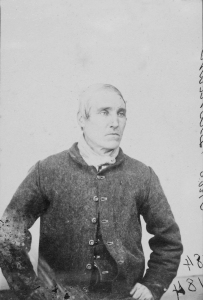
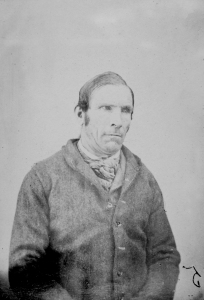
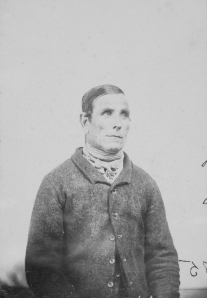
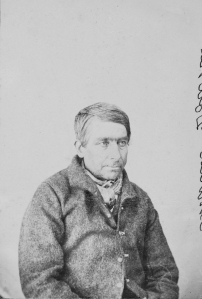

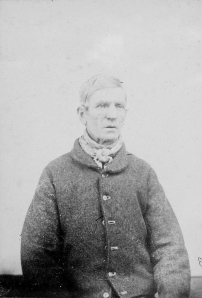
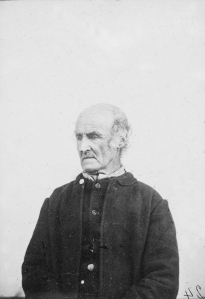
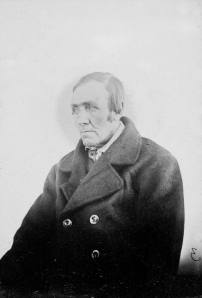
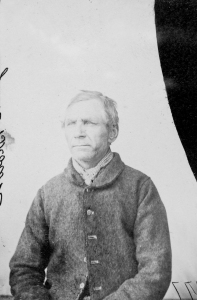
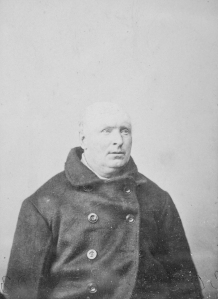
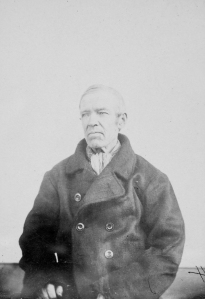


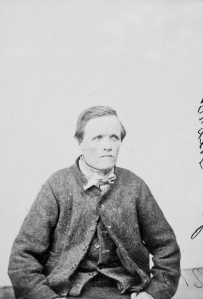
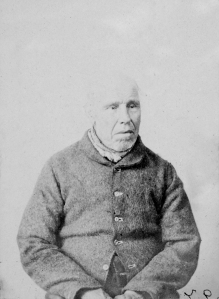
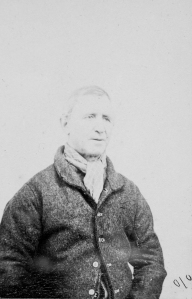
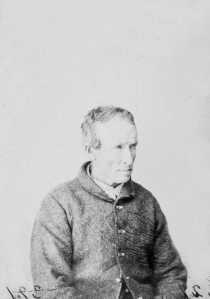
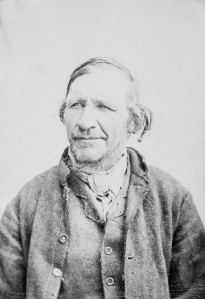
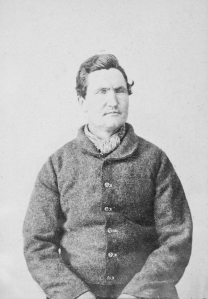
B & W copies of the QVMAG prisoner cdv's
While also at the QVMAG in 1983, Chris Long made black & white copies of T. J. Nevin's original sepia cdv's of 1870s Tasmanian "convicts".
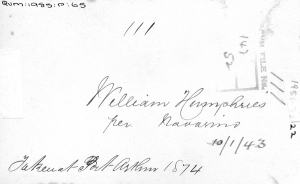
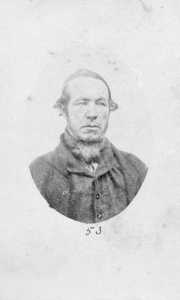
William Humphries

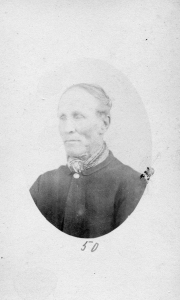
Ephraim Doe
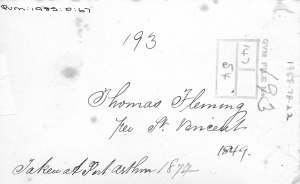
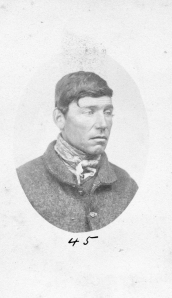
Thomas Fleming
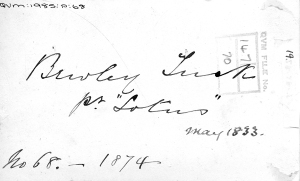

Bewley Tuck
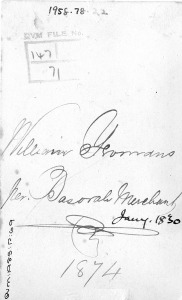
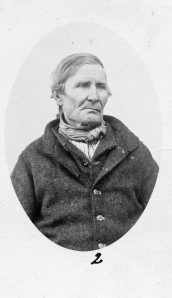
William Yeomans
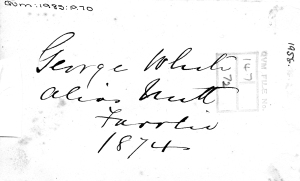
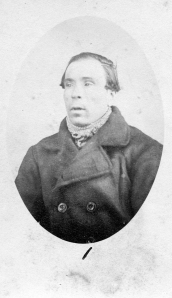
George White alias Nutt
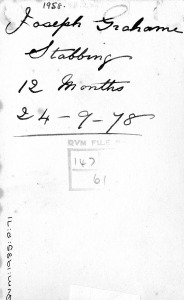
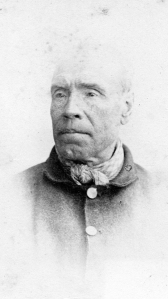
Joseph Grahame
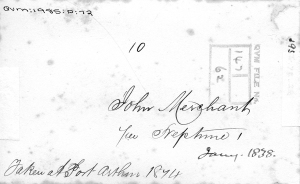
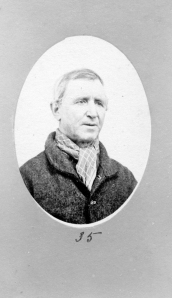
John Merchant
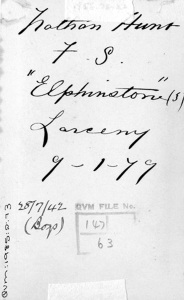
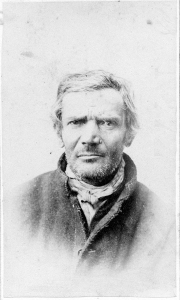
Nathan Hunt


William Burley
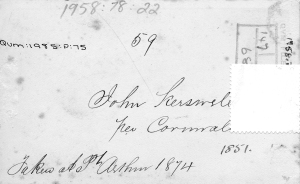

John Kerswell
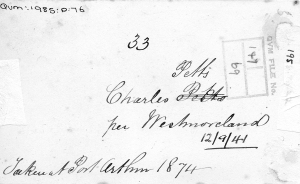
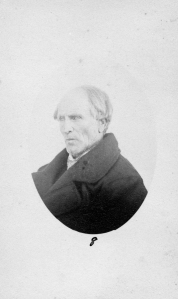
Charles Petts

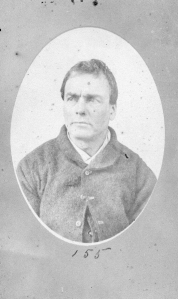
Henry Singleton (aka Richard Pinches)
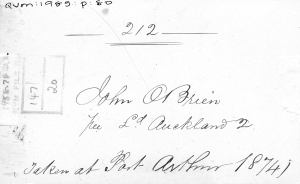

John O'Brien
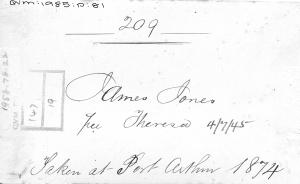
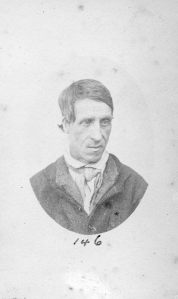
James Jones (aka Brocklehurst)
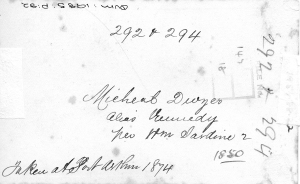
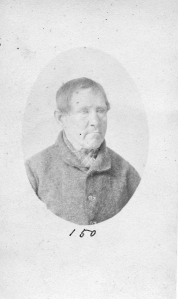
Michael Dwyer
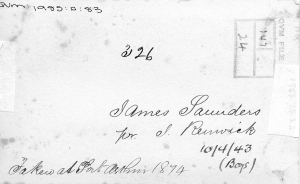
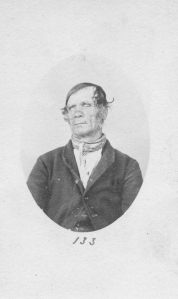
James Saunders
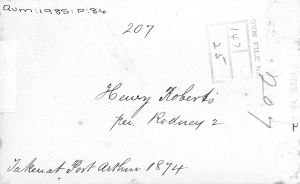
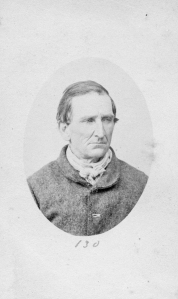
Henry Roberts
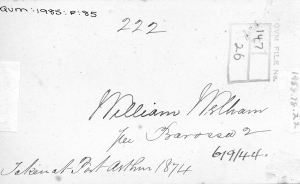
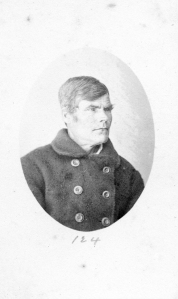
William Welham

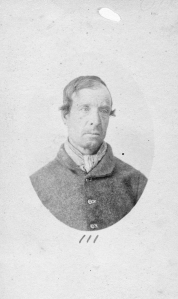
James Connolly
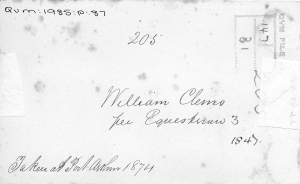
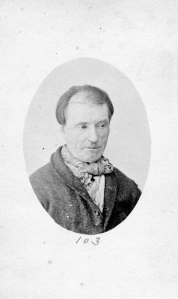
William Clemo

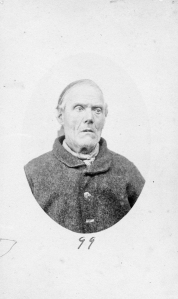
John Gould
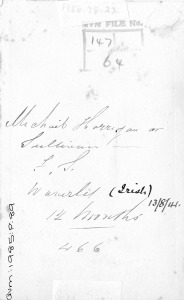
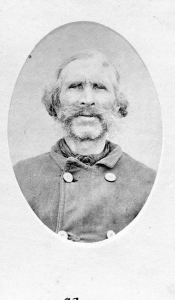
Michael Harrigan or Horrigan and Sullivan, transported as Michael Lynch
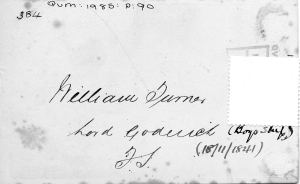
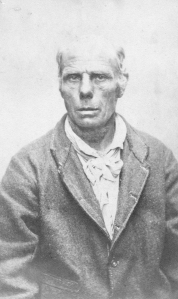
William Turner
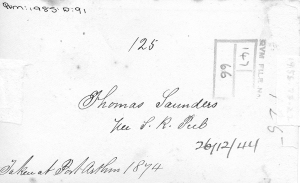

Thomas Saunders

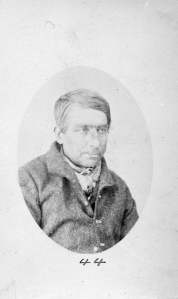
Charles Dawnes (correct spelling is Downes)

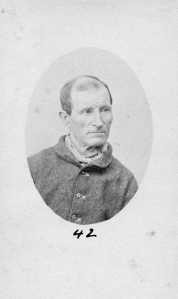
Richard Corbeth
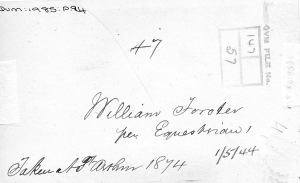
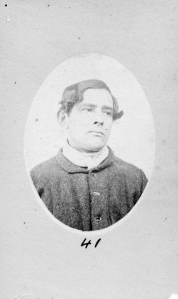
William Forster (aka Charles Brown)
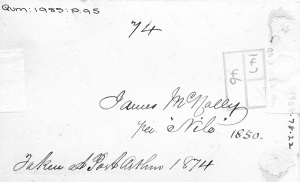
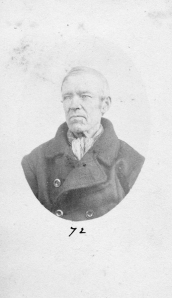
James McNally
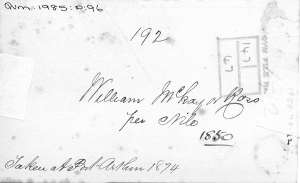
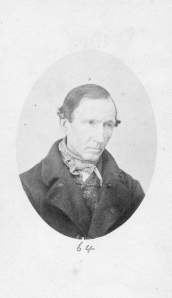
William McKay or Ross
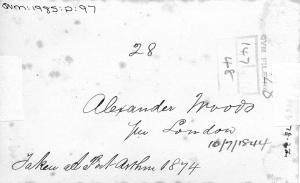
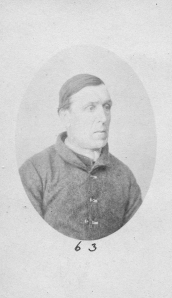
Alexander Wood(s)

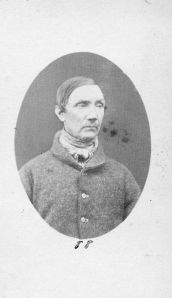
James Todd
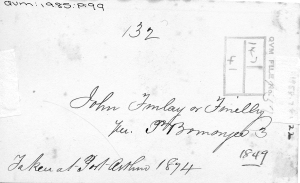

John Finlay or Finelly


William Curtis - reconvicted as John Curtis, manslaughter 1856

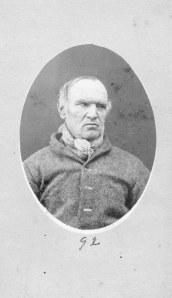
Edward Ray
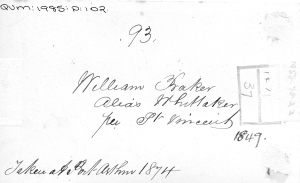
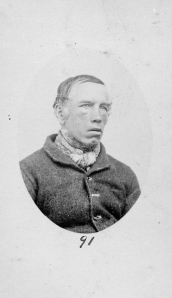
William Baker

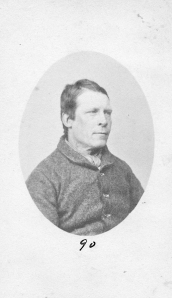
William Marsden
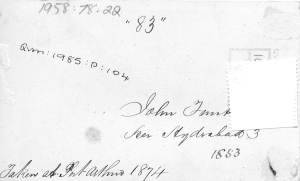
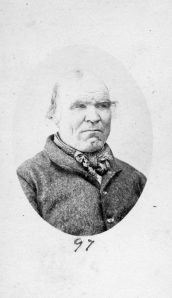
John Funt
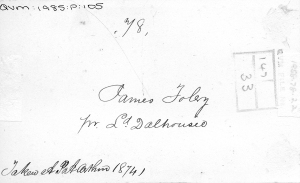
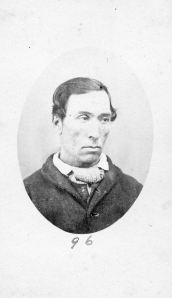
James Foley

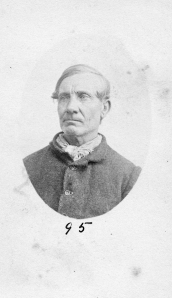
Emmanuel Piper
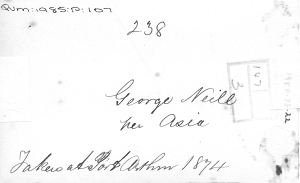
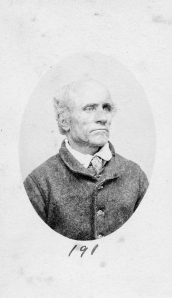
George Neill aka Neale
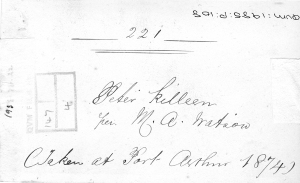
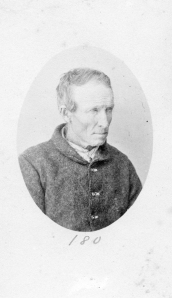
Peter Killeen
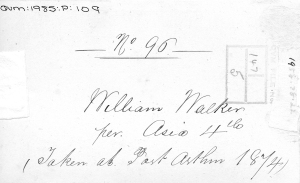
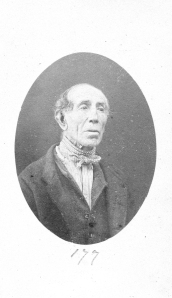
William Walker
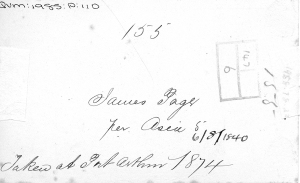
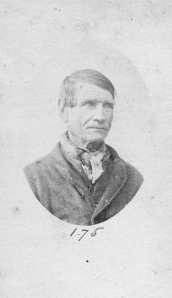
James Page
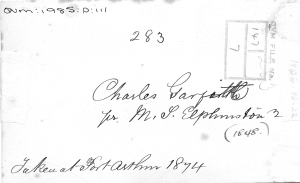
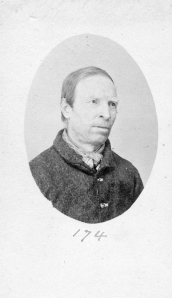
Charles Garforth/Garfitt

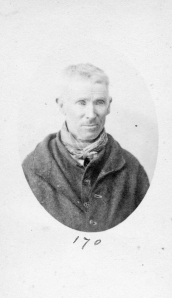
John Donovan
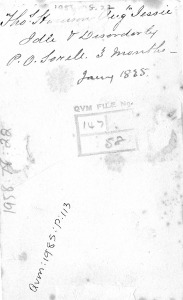

Thomas Harrison
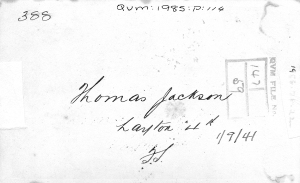
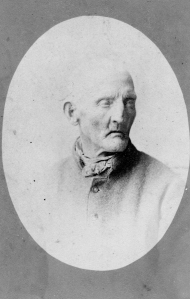
Thomas Jackson
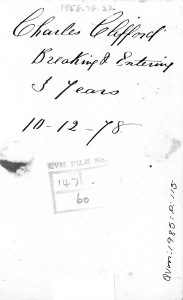
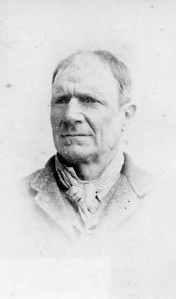
Charles Clifford


Charles Steventon
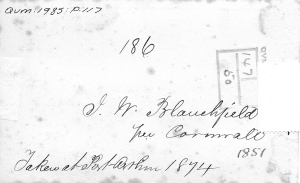
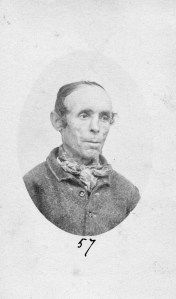
J. W. Blanchfield
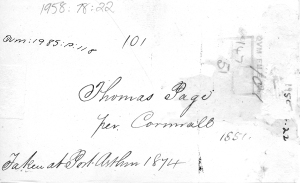
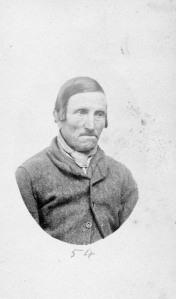
Thomas Page
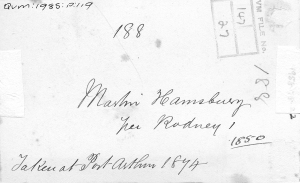
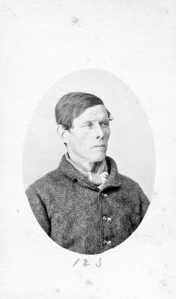
William Hansbury
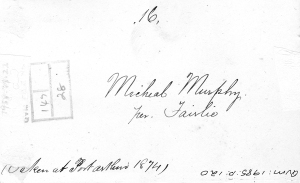

Michael Murphy
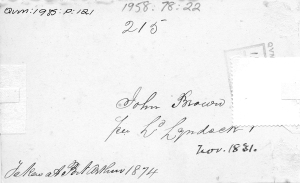
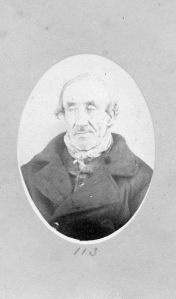
John Brown

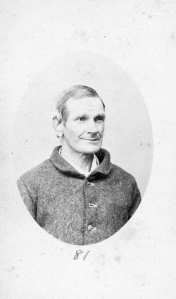
John Barnes
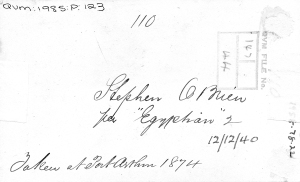
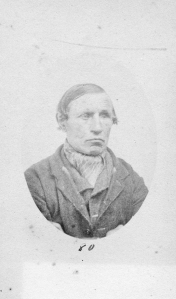
Stephen O'Brien
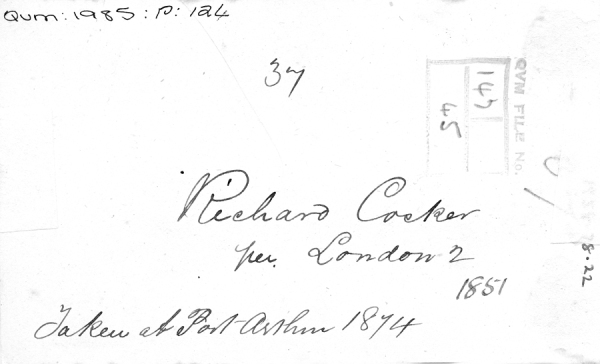
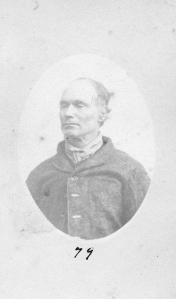
Richard Cosker or Cocker
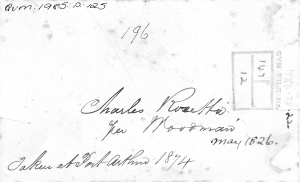
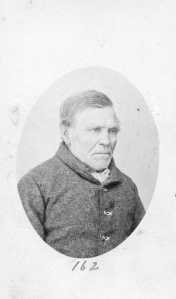
Charles Rosetta
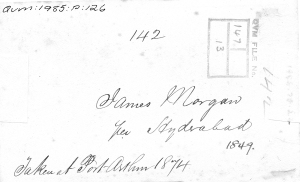
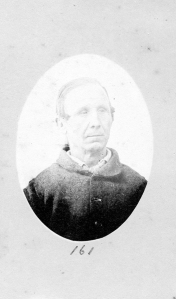
James Morgan


Patrick Grant
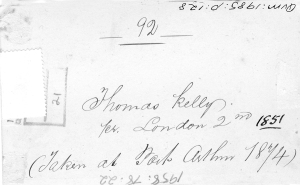
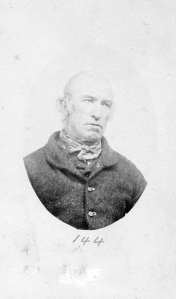
Thomas Kelly
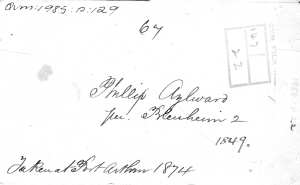

Philip Aylward


George Robinson
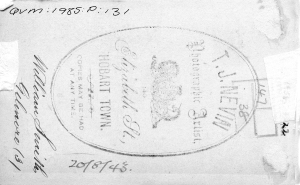

William Smith per Gilmore 3
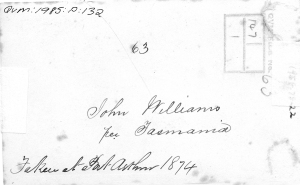
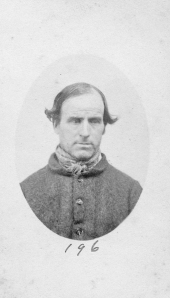
John Williams

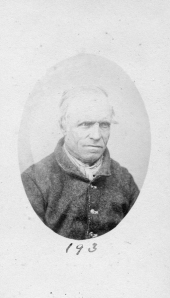
William Woodley
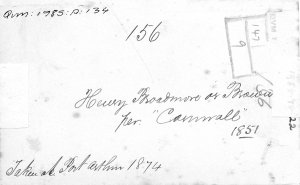
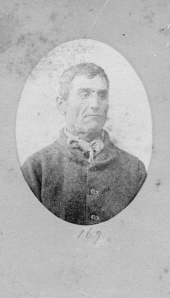
Henry Broadmore
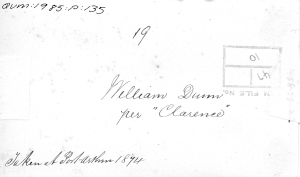
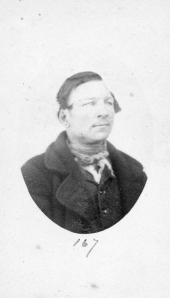
William Dunn


Peter Perry
The Port Arthur Heritage Site exhibition 1983
At least fifty more of these prisoner photographs from the 1870s which were originally held in the QVMAG collection were removed in 1983 for an exhibition at the Port Arthur heritage site and not returned, deposited instead at the Tasmanian Museum and Art Gallery, Hobart. Those missing on the QVMAG inventory list bear a pencilled number to keep track of them when they were physically removed from the QVMAG by Elspeth Wishart. Only 72 cdvs of the much larger acquisition from Beattie's estate in the 1930s are now extant at the Queen Victoria Museum and Art Gallery, Launceston. Click here to view the TMAG collection digitised for KLW NFC Imprint (2015).
This is the inventory list of 200 prisoner cdv's in the Beattie collection with missing numbers (received here in 2005):



The list of the remaining 72 Tasmanian prisoner “portraits” in the Beattie Collection 2005 (QVMAG)
The numbers pencilled on the right show those which were removed in 1983 and taken to Port Arthur for an exhibition, but were returned to the TMAG and not the QVMAG .
Copyright © KLW NFC Imprint 2005-2025.
RELATED POSTS main weblog

